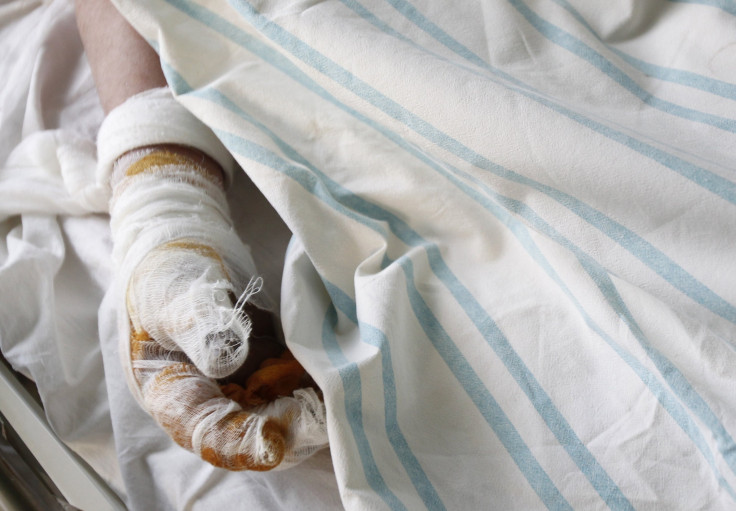What Is Wind Chill? How To Stay Safe During Cold Gales

Across many parts of the country this weekend, strong gusts of wind have ushered in cold air, leading to a drop in temperature in many states.
Forecasters in places like Chicago are also predicting that wind-chills values go down to single digits. The term which is commonly used by meteorologists in the colder months of the year refers to how cold it actually feels on your skin when the wind is factored in.
According to the Scientific American, wind-chill is a number that is mathematically derived and approximates how cold your skin feels and not how cold it actually is. This is caused when the wind takes away some of the heat under your skin that usually radiates heat due to blood and underlying tissue.
National Weather Service (NWS) says the wind chill temperature is based on the rate of heat loss from exposed skin caused by wind and cold and is to give you an approximation of how cold the air feels on your body.
The report by Scientific American also quotes Catherine O’Brien, a research physiologist at the U.S. Army Research Institute of Environmental Medicine in Natick, Massachusetts, saying that while different wind-chill indexes use different formulas, the most common factor among all of them are air temperature and wind speed.
The wind-chill chart by NWS uses only those two quantities while AccuWeather’s "RealFeel" index adds in effects such as cloud cover and sun angle. AccuWeather’s formula is, however, patent-protected.
Weather.com reports that wind-chill can pose dangerous risks to your health and one of the dangers of wind-chill is hypothermia. According to the website, the colder the wind chill, higher the risk for developing frostbite or hypothermia.
The condition occurs when your core body temperature, normally around 98.6 degrees Fahrenheit, drops below 95 degrees Fahrenheit.
The National Weather Service offers these tips to prevent hypothermia:
- Dress in layers
- Wrap up well when going outside in the cold
- Avoid breezes and drafts indoors
- Eat nutritious food and wear warm clothes to ward off winter chill
- Wear a warm hat in the winter
- Eat hot foods and drink warm drinks several times during the day
- If you live alone, ask a family member or neighbor to check on you daily.
Another health complication that could occur because of wind-chill is frostbite. This happens when the body cuts circulation to your extremities: feet, hands, nose, etc. as a survival mechanism to protect the vital inner organs. The feet and hands eventually freeze.
The NHS advises staying inside during severe cold, especially when the wind chill is -50 degrees Fahrenheit or below and to cover every part of your body: ears, nose, toes and fingers, etc. It also recommends staying out of the wind when possible. Drinking plenty of fluids is also good since hydration increases the blood's volume, which helps prevent frostbite.
© Copyright IBTimes 2025. All rights reserved.





















